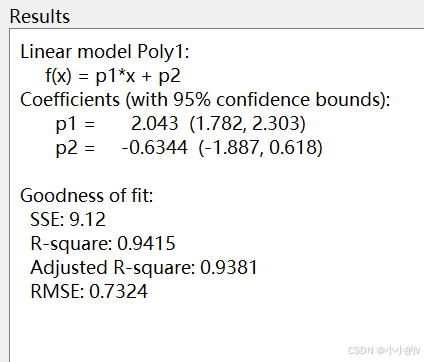各层封装关系

封装时细节/tips
Rfr Ptr用来constiterator
//HTIterator 模板
template<class K, class T, class Ptr, class Rfr, class KeyOfT, class Hash>
class HTIterator
//普通Iterator类 & const_iterator类
typedef HTIterator<K, T, T*, T&, KeyOfT, Hash> Iterator;
typedef HTIterator<K, T, const T*, const T&, KeyOfT, Hash> ConstIterator;hashtable中必须写const Begin & const End ,因为cosntiterator和iterator是两个不同的类,不可自动转换
//错误, iterater & const_iterator不是同一类, 也没有强转函数, 不可转化
bit::HashTable<string, pair<string, string>>::ConstIterator it = ss.Begin();
//正确, 类型匹配
bit::HashTable<string, pair<string, string>>::ConstIterator it = ss.cBegin();因子比较记得转成小数
//错误, 两整数相除, 结果还是整数, 误差较大
if (_n / _tables.size() >= 1)//扩容
//正确
if (double(_n) / _tables.size() >= 1)//扩容HTIterator 构造函数, _ptr不可const, _pht 一定要const 为了 constiterator 初始化(传递 const this,要用 const hashtable类接收)
//iterator构造函数
HTIterator(HashNode<T>* p, const HashTable<K, T, KeyOfT, Hash>* pht):
_ptr(p),
_pht(pht)
{}
//iterator成员类型
HashNode<T>* _ptr = nullptr;
const HashTable<K, T, KeyOfT, Hash>* _pht;函数名后的const只修饰this指针
在类中,const成员函数只能调用const成员函数,因为this指针存在
但可以调用非成员函数的非const函数(在保证不权限放大情况下)
源代码:
代码库链接:daily-practice-code: 存放日常练习的代码, 包括网课内容练习, 各种容器/算法模拟实现, I/O好题等
main.cpp
#include "unordered_map.h"
#include "unordered_set.h"
using namespace std;
void test_hash_bucket()
{
bit::HashTable<string, pair<string, string>> ss;
ss.Insert(make_pair("1", "one"));
ss.Insert(make_pair("2", "two"));
ss.Insert(make_pair("3", "three"));
ss.Insert(make_pair("4", "four"));
ss.Insert(make_pair("5", "five"));
ss.Insert(make_pair("6", "six"));
ss.Insert(make_pair("7", "sevent"));
ss.Insert(make_pair("8", "eight"));
ss.Insert(make_pair("9", "nine"));
ss.Insert(make_pair("10 ", "ten"));
ss.Insert(make_pair("11", "eleven"));
ss.Insert(make_pair("12", "twelve"));
ss.Insert(make_pair("13", "thirteen"));
bit::HashTable<string, pair<string, string>>::ConstIterator it = ss.cBegin();
while (it != ss.cEnd())
{
cout << it->first << ":" << it->second << endl;
++it;
}
cout << "hello unordered" << endl;
}
void test_unordered_map()
{
bit::unordered_map<string, string> ss;
ss["1"] = "one";
ss["2"] = "two";
ss["3"] = "three";
ss.insert(make_pair("4", "four"));
ss.insert(make_pair("5", "five"));
ss.insert(make_pair("6", "six"));
ss.insert(make_pair("7", "seven"));
bit::unordered_map<string, string>::iterator it = ss.begin();
cout << "before erase:" << endl;
for (const auto& e: ss)
{
cout << e.first << ":" << e.second << endl;
}
cout << "fine(\" 2\")" << ":" << ss.find("2")->second << endl;
it = ss.erase(it);
cout << "after erase" << endl;
while (it != ss.end())
{
cout << it->first << ":" << it->second << endl;
++it;
}
cout << "ss.bucket_count() == " << ss.bucket_count() << endl;
cout << "bucket_size(2) == " << ss.bucket_size("2") << endl;
cout << "hello unordered_map" << endl;
}
void test_unordered_set()
{
bit::unordered_set<int> ss;
ss.insert(1);
ss.insert(2);
ss.insert(3);
ss.insert(4);
ss.insert(5);
ss.insert(6);
ss.insert(7);
ss.insert(8);
ss.insert(9);
ss.insert(10);
ss.insert(11);
bit::unordered_set<int>::iterator it = ss.begin();
cout << "before erase:" << endl;
for (const auto& e : ss)
{
cout << e << endl;
}
cout << "fine(\" 2\")" << ":" << *(ss.find(2)) << endl;
it = ss.erase(it);
cout << "after erase begin" << endl;
while (it != ss.end())
{
cout<<(*it)<< endl;
++it;
}
cout << "ss.bucket_count() == " << ss.bucket_count() << endl;
cout << "bucket_size(2) == " << ss.bucket_size(2) << endl;
cout << "successful, unordered_set" << endl;
}
int main()
{
//test_hash_bucket();
//test_unordered_map();
test_unordered_set();
return 0;
}unordered_map.h
#include "hash_bucket.h"
namespace bit
{
// unordered_map中存储的是pair<K, V>的键值对,K为key的类型,V为value的类型,HF哈希函数类型
// unordered_map在实现时,只需将hashbucket中的接口重新封装即可
template<class K, class V, class HF = HashFunc<K>>
class unordered_map
{
// 通过key获取value的操作
struct KeyOfValue
{
const K& operator()(const pair<K, V>& data)
{
return data.first;
}
};
typedef bit::HashTable<K, pair<K, V>, KeyOfValue, HF> HT;
public:
typedef typename HT::Iterator iterator;
typedef typename HT::ConstIterator const_iterator;
public:
unordered_map() : _ht()
{}
iterator begin() { return _ht.Begin(); }
iterator end() { return _ht.End(); }
// capacity
size_t size()const { return _ht.size(); }
bool empty()const { return _ht.empty(); }
///
// Acess
V& operator[](const K& key)
{
pair<iterator, bool> ret = _ht.InsertUnique(pair<K, V>(key, V()));
return ret.first->second;
}
const V& operator[](const K& key)const
{
pair<iterator, bool> ret = _ht.InsertUnique(pair<K, V>(key, V()));
return ret.fisrt->second;
}
//
// lookup
iterator find(const K& key) { return _ht.Find(key); }
size_t count(const K& key) { return _ht.Count(key); }
/
// modify
pair<iterator, bool> insert(const pair<K, V>& valye)
{
return _ht.InsertUnique(valye);
}
iterator erase(iterator position)
{
return _ht.Erase(position);
}
// bucket
size_t bucket_count() { return _ht.UnemptyBucketCount(); }
size_t bucket_size(const K& key) { return _ht.BucketSize(key); }
private:
HT _ht;
};
}unoredered_set.h
#pragma once
#include "hash_bucket.h"
namespace bit
{
// unordered_set中存储的是K类型,HF哈希函数类型
// unordered_set在实现时,只需将hashbucket中的接口重新封装即可
template<class K, class HF = HashFunc<K>>
class unordered_set
{
// 通过key获取value的操作
struct KeyOfValue
{
const K& operator()(const K& data)
{
return data;
}
};
typedef bit::HashTable<K, K, KeyOfValue, HF> HT;
public:
typedef typename HT::Iterator iterator;
typedef typename HT::ConstIterator const_iterator;
public:
unordered_set() : _ht()
{}
iterator begin() { return _ht.Begin(); }
iterator end() { return _ht.End(); }
// capacity
size_t size()const { return _ht.size(); }
bool empty()const { return _ht.empty(); }
///
// lookup
iterator find(const K& key) { return _ht.Find(key); }
size_t count(const K& key) { return _ht.Count(key); }
/
// modify
pair<iterator, bool> insert(const K& value)
{
return _ht.InsertUnique(value);
}
iterator erase(iterator position)
{
return _ht.Erase(position);
}
// bucket
size_t bucket_count() { return _ht.UnemptyBucketCount(); }
size_t bucket_size(const K& key) { return _ht.BucketSize(key); }
private:
HT _ht;
};
}hash_bucket.h
#pragma once
#pragma once
#include <iostream>
#include <string>
#include <assert.h>
#include <vector>
using namespace std;
template <class T, class K>//默认pair
struct KOT
{
K operator()(const T& kv)
{
return kv.first;
}
};
template<class K>
struct HashFunc
{
size_t operator()(const K& key)
{
return (size_t)key;
}
};
// 哈希表中支持字符串的操作
template<>
struct HashFunc<string>
{
size_t operator()(const string& key)
{
return stoi(key);
size_t hash = 0;
for (auto e : key)
{
hash *= 31;
hash += e;
}
return hash;
}
};
namespace bit
{
template<class T>
struct HashNode
{
T _data;
HashNode<T>* _next;
HashNode(const T& data)
:_data(data)
, _next(nullptr)
{}
};
// 前置声明
template<class K, class T, class KeyOfT, class Hash>
class HashTable;
template<class K, class T, class Ptr, class Rfr, class KeyOfT, class Hash>
class HTIterator
{
typedef HTIterator<K, T, Ptr, Rfr, KeyOfT, Hash> Self;
public:
HTIterator(HashNode<T>* p, const HashTable<K, T, KeyOfT, Hash>* pht):
_ptr(p),
_pht(pht)
{}
Rfr operator*()
{
return _ptr->_data;
}
Self operator++()
{
decltype(_ptr) cur = _ptr->_next;
if (cur)//cur不为空
{
_ptr = cur;
return Self(_ptr, _pht);
}
//cur为空
size_t int_key = hash(kot(_ptr->_data));
int_key %= _pht->_tables.size();
int_key++;
while (int_key < _pht->_tables.size())
{
if (_pht->_tables[int_key])//不为空
{
_ptr = _pht->_tables[int_key];
return Self(_ptr, _pht);
}
int_key++;
}
_ptr = nullptr;
return Self(nullptr, _pht);
}
Ptr operator->()
{
return &(_ptr->_data);
}
bool operator==(const Self& other) const
{
return _ptr == other._ptr;
}
bool operator!=(const Self other) const
{
return _ptr != other._ptr;
}
private:
HashNode<T>* _ptr = nullptr;
const HashTable<K, T, KeyOfT, Hash>* _pht;
Hash hash;
KeyOfT kot;
};
// K 为 T 中key的类型
// T 可能是键值对,也可能是K
// KeyOfT: 从T中提取key
// Hash将key转化为整形,因为哈市函数使用除留余数法
template<class K, class T, class KeyOfT = KOT<T, K>, class Hash = HashFunc<K>>
class HashTable
{
template<class K, class T,class Ptr, class Rfr, class KeyOfT, class Hash >
friend class HTIterator;
typedef HashNode<T> Node;
public:
typedef HTIterator<K, T, T*, T&, KeyOfT, Hash> Iterator;
typedef HTIterator<K, T, const T*, const T&, KeyOfT, Hash> ConstIterator;
HashTable()
{
_tables.resize(10, nullptr);
}
// 哈希桶的销毁
~HashTable()
{
for (auto e : _tables)
{
while (e)
{
auto next = e->_next;
delete e;
e = next;
}
}
}
// 插入值为data的元素,如果data存在则不插入
bool Insert(const T& data)
{
if (Find(kot(data))!= Iterator(nullptr, this)) return false;
if (double(_n) / _tables.size() >= 1)//扩容
{
HashTable<K, T, KeyOfT, Hash> new_hash;
new_hash._tables.resize(_tables.size() * 2);
for (auto e : _tables)
{
while (e)
{
new_hash.Insert(e->_data);
e = e->_next;
}
}
_tables.swap(new_hash._tables);
Insert(data);
return true;
}
Node* ptr = new Node(data);
int key = hash(kot(data));
key %= _tables.size();
ptr->_next = _tables[key];
_tables[key] = ptr;
_n++;
return true;
}
pair<Iterator, bool> InsertUnique(const T& data)
{
if (Find(kot(data)) != Iterator(nullptr, this)) return make_pair(Find(kot(data)),false);
if (double(_n) / _tables.size() >= 1)//扩容
{
HashTable<K, T, KeyOfT, Hash> new_hash;
new_hash._tables.resize(_tables.size() * 2);
for (auto e : _tables)
{
while (e)
{
new_hash.Insert(e->_data);
e = e->_next;
}
}
_tables.swap(new_hash._tables);
return make_pair(InsertUnique(data).first, true);
}
Node* ptr = new Node(data);
int key = hash(kot(data));
key %= _tables.size();
ptr->_next = _tables[key];
_tables[key] = ptr;
_n++;
return make_pair(Iterator(ptr, this), true);
}
// 在哈希桶中查找值为key的元素,存在返回true否则返回false
Iterator Find(const K& key)
{
int int_key = hash(key);
int_key %= _tables.size();
auto ptr = _tables[int_key];
while (ptr)
{
if (kot(ptr->_data) == key) return Iterator(ptr, this);
ptr = ptr->_next;
}
return Iterator(nullptr, this);
}
// 哈希桶中删除key的元素,删除成功返回true,否则返回false
pair<Iterator, bool> Erase(const K& key)
{
if (Find(key)== End()) return make_pair(Iterator(nullptr, this), false);//找不到key
//存在key
int int_key = hash(key);
int_key %= _tables.size();
auto ptr = _tables[int_key];
Node* prev = ptr;
while (ptr)
{
if (kot(ptr->_data) == key)
{//ptr为要删除结点
if (prev == ptr)//ptr为头节点
{
_tables[int_key] = ptr->_next;
}
else prev->_next = ptr->_next;
Iterator it(ptr, this);
++it;
delete ptr;
_n--;
return make_pair(it, true);
}
prev = ptr;
ptr = ptr->_next;
}
//找不到删除节点
return make_pair(Iterator(nullptr, this), false);
}
Iterator Erase(Iterator it)
{
return Erase(kot(*it)).first;
}
size_t size() const
{
return size_t(_n);
}
bool empty() const
{
return _n == 0;
}
size_t Count(const K& key)
{
size_t ret = 0;
Iterator it = Begin();
while (it != End())
{
if (it->first == key)
{
ret++;
}
++it;
}
return ret;
}
size_t TotalBucketCount()
{
return _tables.size();
}
size_t UnemptyBucketCount()
{
size_t ret = 0;
for (const auto& e : _tables)
{
if (e) ++ret;
}
return ret;
}
size_t BucketSize(const K& key)
{
int int_key = hash(key);
Node* cur = _tables[int_key];
size_t ret = 0;
while (cur)
{
ret++;
cur = cur->_next;
}
return ret;
}
Iterator Begin()
{
int cur = 0;
while (cur < this->_tables.size())
{
if (_tables[cur])
{
return Iterator(_tables[cur], this);
}
cur++;
}
return End();
}
ConstIterator cBegin() const
{
int cur = 0;
while (cur < this->_tables.size())
{
if (_tables[cur])
{
return ConstIterator(_tables[cur], this);
}
cur++;
}
return cEnd();
}
Iterator End()
{
return Iterator(nullptr, this);
}
ConstIterator cEnd() const
{
return ConstIterator(nullptr, this);
}
void Print(const string& str = "")
{
cout << str << endl;
for (auto e : _tables)
{
while (e)
{
cout << e->_data.first << ":" << e->_data.second << endl;
e = e->_next;
}
}
}
private:
vector<Node*> _tables; // 指针数组
size_t _n = 0; // 表中存储数据个数
KeyOfT kot;
Hash hash;
};
}


















